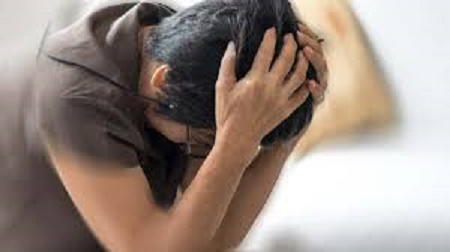Feeling Dizzy and Tired and Weak and Nauseous
Dizziness and fatigue can occur due to a number of possible reasons, including:

- Dehydration
A common cause of dizziness, dehydration occurs when the body doesn’t have enough water. Other symptoms include thirst, dry mouth, dry lips, and dry skin.
- Anemia
An iron deficiency that can cause dizziness, weakness, paleness, and cold hands. Heavy menstrual periods can also lead to anemia.
- Vitamin B12 deficiency
A lack of vitamin B12 can cause fatigue, lethargy, low mood, shortness of breath, and nerve problems.
- Hypoglycemia
- Medications
Certain medications, such as muscle relaxants, antiepileptic drugs, antihistamines, and blood pressure medications, can cause dizziness.
- Chronic fatigue syndrome
A condition that can cause dizziness and fatigue. Dizziness can feel like a head rush or staggering when walking, while fatigue can contribute to quality of life changes.
- Inner ear problems
Problems in the inner ear, which regulates balance and senses movement, can cause dizziness. Hearing loss can also be a symptom.
Other possible causes of dizziness and fatigue include: Hypotension, Migraine, Irregular heart rhythms, Vestibular neuronitis, and Concussion.
Common causes of Dizziness and Fatigue
Other possible reasons for lightheadedness include:
Abrupt drop in blood pressure: Standing up can trigger orthostatic hypotension, which is a sudden reduction in blood pressure that can be brought on by a number of medical disorders. It can cause lightheadedness and falls, particularly in elderly people.
Cardiomyopathy: This disorder causes the heart’s muscles to weaken and grow inflexible, reducing its ability to pump blood. Breathing difficulties, lightheadedness, and fainting are possible symptoms.
Heart attack: The most common sign of a heart attack is chest pain, although other symptoms include lightheadedness or dizziness. They happen when your brain does not receive enough blood.
Arrhythmia: An irregular heartbeat is known as an arrhythmia. Breathlessness, lightheadedness, or dizziness may result from it.

Circulation issues of Dizziness and Fatigue:
Your heart may not be able to pump enough blood if you have cardiomyopathy, a heart attack, or another heart disorder. This may make you feel lightheaded.
Excessive exercise: Excessive exercise might cause lightheadedness or dizziness. Additionally, it may result in heat exhaustion and dehydration, both of which can make you feel lightheaded.
Heat exhaustion: You are probably suffering from heat exhaustion if you are perspiring excessively when in a hot atmosphere. The illness may cause weakness, thirst, and vertigo.
Reduced blood volume: Bleeding or dehydration can cause low blood volume. It may result in low blood pressure, exhaustion, and lightheadedness. Find out more about the connection between blood pressure and dehydration.
Anxiety disorders: When there are no other physical causes, dizziness may be linked to anxiety. You can experience dizziness on a regular basis.
Anemia: A low red blood cell count is known as anemia. Your red blood cells cannot carry enough oxygen throughout your body if they have low amounts of iron-rich hemoglobin. Anemia’s deficiency of oxygen can make you feel exhausted, lightheaded, or breathless.
Hypoglycemia: Low blood sugar, or hypoglycemia, might cause feelings of hesitancy, dizziness, or hunger. Seizures may result from severe hypoglycemia, a dangerous condition. Learn about further hypoglycemia symptoms.
Carbon monoxide poisoning: Inhaling carbon monoxide fumes from heaters, grills, or automobiles that accumulate indoors can be lethal. Symptoms include headache, nausea, and dizziness.
When to Seek Immediate Medical Attention
If you have any of the following symptoms in addition to a dizzy spell, contact a healthcare professional right away:3433
- Pain in the chest
- Drooping of the face
- Fever, particularly if it exceeds 101 degrees Fahrenheit
- Unable to maintain fluid levels
- Breathlessness or an irregular heartbeat
- fainting or loss of consciousness
- Weakness, stiff neck, or limb numbness
- A head injury or a chronic headache
- Hearing or vision issues
- Convulsions
- Speech slurred
Treatment For dizziness and fatigue
Here are some remedies for weariness and lightheadedness:
Hydration: To prevent dehydration, consume a lot of liquids, particularly water.
Rest: Make sure you get enough rest and sleep.
Steer clear of substances: Limit or stay away from drugs, coffee, cigarettes, and alcohol.
Move cautiously and slowly if you’re experiencing vertigo. Don’t bend over or stand up abruptly.
Control your stress: Try to lower your stress levels because they can cause dizziness.
Consume wholesome food: Consume a nutritious diet.
Consume supplements: Magnesium and the vitamins E, D3, and K2 may aid with weariness and lightheadedness.
Use an antihistamine: An over-the-counter antihistamine may be helpful if your dizziness is accompanied by an unsettled stomach.
Use a walking aid: If you have vertigo, you may want to use a walking aid or cling to a railing when climbing and descending steps.
Steer clear of risky situations: When you’re feeling lightheaded, don’t operate heavy machinery, drive, or climb a ladder.
